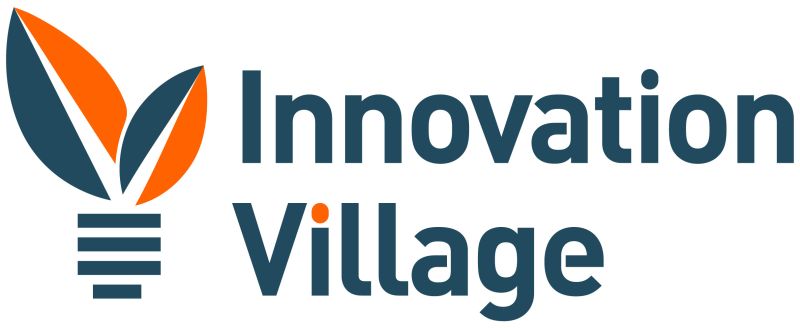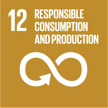About this project
The "Fuel Her with Waste" project aims to address two critical global challenges simultaneously: achieving Sustainable Development Goal 12 (SDG 12) - responsible consumption and production, and empowering women in local communities. The project focuses on the production and promotion of eco-friendly charcoal briquettes and firestarters made from waste materials, contributing to a circular economy and reducing deforestation caused by traditional charcoal production.
The utilization of agricultural and organic waste as raw materials for the production of charcoal briquettes will reduce the pressure on natural forests, promoting responsible consumption and sustainable production practices. By creating an innovative value chain that empowers women entrepreneurs, the project aims to enhance gender equality and economic opportunities for women in the target communities.
Key activities are:
Waste-to-Charcoal Briquettes Production: The project will establish community-based processing centers equipped with simple yet efficient technology to transform agricultural and organic waste (such as rice husks, sawdust, and biomass residues) into high-quality charcoal briquettes.
Firestarter Development: Alongside briquettes, the project will develop eco-friendly firestarters to promote the use of the charcoal briquettes as an alternative to traditional charcoal and wood, reducing indoor air pollution and promoting safer cooking practices.
Training and Capacity Building: The project will provide comprehensive training to women entrepreneurs on waste collection, briquette production techniques, and business management skills, empowering them to lead and manage their own enterprises.
Market and Advocacy: To create awareness and generate demand for the products, the project will conduct marketing campaigns and advocate for sustainable practices in local communities, businesses, and institutions.
Impact Monitoring and Assessment: The project will continuously monitor its environmental and social impacts, including carbon emissions reduction, forest conservation, and improvements in the livelihoods of participating women entrepreneurs.
Expected Outcomes of our projects are
Reduced Deforestation: By providing an alternative to traditional charcoal production, the project aims to mitigate deforestation and protect biodiversity in vulnerable ecosystems.
Greenhouse Gas Emission Reduction: Transitioning to charcoal briquettes will lead to lower carbon emissions compared to traditional charcoal production, contributing to climate change mitigation.
Sustainable Community Development: The adoption of charcoal briquettes and firestarters will promote responsible consumption and production patterns, fostering sustainable development in the target communities.
The "Fuel Her with Waste" project envisions a future where women are at the forefront of sustainable entrepreneurship, driving positive environmental and social change while contributing to the achievement of SDG 12 and women empowerment goals. Through collaboration with local stakeholders, the project aims to create lasting impact and inspire similar initiatives worldwide.
Goals and Objectives
The primary goal of the "Fuel Her with Waste" project is to promote sustainable development (SDG 12) and women empowerment through the production and utilization of charcoal briquettes and firestarters made from agricultural and organic waste.
Objectives:
- Establish Waste-to-Charcoal Briquettes Centers: Set up community-based processing centers equipped with appropriate technology to convert agricultural waste into high-quality charcoal briquettes.
- Develop Eco-friendly Firestarters: Create efficient and eco-friendly firestarters to complement the use of charcoal briquettes, reducing reliance on traditional charcoal and wood.
- Empower Women Entrepreneurs: Provide training and capacity building to women entrepreneurs, enabling them to lead and manage their own charcoal briquette enterprises.
- Create Awareness and Generate Demand: Conduct marketing campaigns and advocacy to raise awareness about the benefits of sustainable charcoal briquettes and foster a demand for these products.
- Monitor Environmental and Social Impact: Continuously assess the project's environmental and social impacts, including reduced deforestation and greenhouse gas emissions, and improved livelihoods for participating women entrepreneurs.
Intended Beneficiaries and Expected Benefits: The intended beneficiaries of the project are:
Women Entrepreneurs: By focusing on women as key actors in the value chain, the project seeks to empower them economically, providing opportunities for income generation and enhanced livelihoods.
Local Communities: The project aims to reduce deforestation, leading to improved air quality and protection of natural ecosystems. The adoption of sustainable charcoal briquettes benefits communities by offering an eco-friendly fuel alternative that mitigates indoor air pollution.
Environment: The project targets a reduction in greenhouse gas emissions and pressures on natural forests, promoting a more sustainable and circular approach to fuel production.
Sustainability and Potential for Replication or Scaling Up: The sustainability of the project's impacts will be ensured through several strategies:
Women-Led Enterprises: By equipping women entrepreneurs with business management skills, the project fosters self-reliance and the potential for their businesses to continue and expand beyond the project duration.
Market and Advocacy: Creating awareness and generating demand for sustainable charcoal briquettes will incentivize ongoing production and utilization in the market, ensuring a sustainable business model.
Replication Potential: The project's community-based approach and waste-to-fuel concept can be replicated in other regions facing similar challenges of deforestation, traditional charcoal use, and limited economic opportunities for women.
Scaling Up: With successful implementation and demonstrated impact, there is potential for scaling up the project to reach more communities and regions, contributing to even greater environmental and social benefits.
In conclusion, the "Fuel Her with Waste" project aims to achieve SDG 12 and women empowerment by producing charcoal briquettes and firestarters from waste materials. The project targets women entrepreneurs and local communities as beneficiaries, promoting sustainable practices and empowering women economically. Its impacts are expected to endure through the creation of women-led businesses, demand generation, and the potential for replication and scaling up to other areas, ultimately contributing to a greener and more inclusive future.
Expected result
The "Fuel Her with Waste" project is expected to yield several positive results, contributing to both environmental sustainability and women empowerment. The anticipated outcomes include:
- Reduced Deforestation: The adoption of charcoal briquettes made from agricultural waste will reduce the demand for traditional charcoal produced from trees, leading to a decrease in deforestation rates. This will contribute to the conservation of natural forests and protect biodiversity.
- Greenhouse Gas Emission Reduction: Charcoal briquettes have a lower carbon footprint compared to traditional charcoal. By promoting their use, the project will help reduce greenhouse gas emissions, supporting climate change mitigation efforts.
- Improved Air Quality: The use of charcoal briquettes and eco-friendly firestarters will result in cleaner burning and reduced indoor air pollution, benefiting the health and well-being of households that rely on solid fuels for cooking.
- Enhanced Women Entrepreneurship: Through training and capacity building, the project will empower women entrepreneurs to lead and manage their charcoal briquette enterprises. This will provide them with a sustainable source of income and increased economic independence.
- Poverty Alleviation: The project's focus on women's economic empowerment and income generation will contribute to poverty reduction, as women invest in their families' well-being and local community development.
Community Awareness and Engagement: The project's marketing campaigns and advocacy efforts will raise awareness about sustainable consumption and production practices, fostering a culture of responsible environmental stewardship within the target communities. - Circular Economy Promotion: By converting agricultural waste into valuable products, the project will demonstrate the principles of a circular economy, promoting resource efficiency and waste reduction.
Increased Access to Clean Cooking Fuel: The availability of charcoal briquettes and firestarters will ensure a more reliable and eco-friendly cooking fuel option, particularly in areas where access to clean cooking technologies is limited.
Replication and Scaling
Opportunities: The successful implementation of the project may inspire similar initiatives in other regions, potentially leading to broader adoption of sustainable fuel production and women-led enterprises.
Contribution to SDG 12 and Gender Equality: Through its multi-faceted approach, the project will contribute to achieving SDG 12 (responsible consumption and production) and SDG 5 (gender equality) by promoting sustainable practices and empowering women.
our project is expected to create lasting positive impacts by addressing environmental challenges, promoting responsible consumption, empowering women entrepreneurs, and fostering a more sustainable future for both communities and the planet.
Sustainable Development Goals
Partners

About me / organisation
Nalukwago Naswirah
she is a humanitarian social worker working with Uganda red cross society and global women

